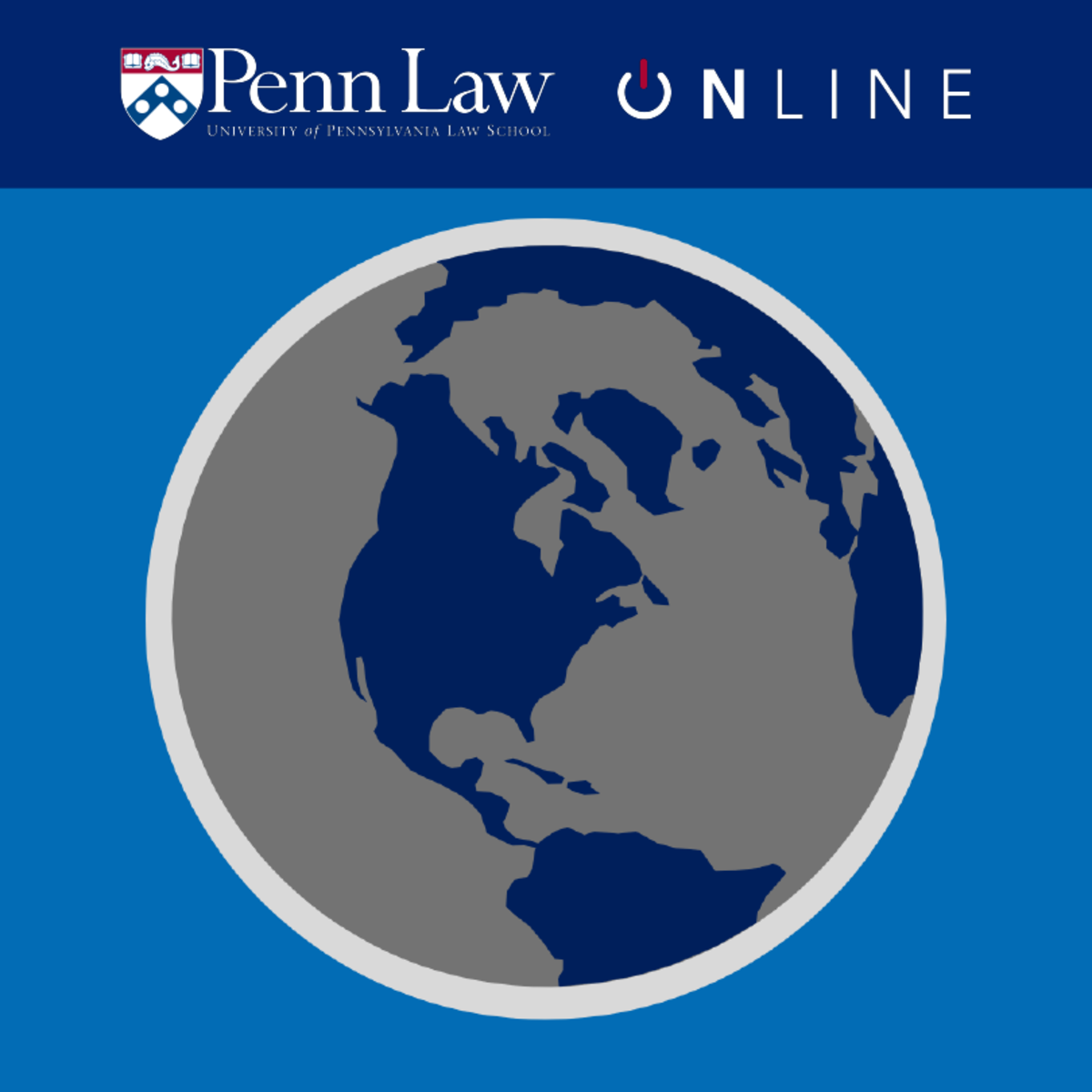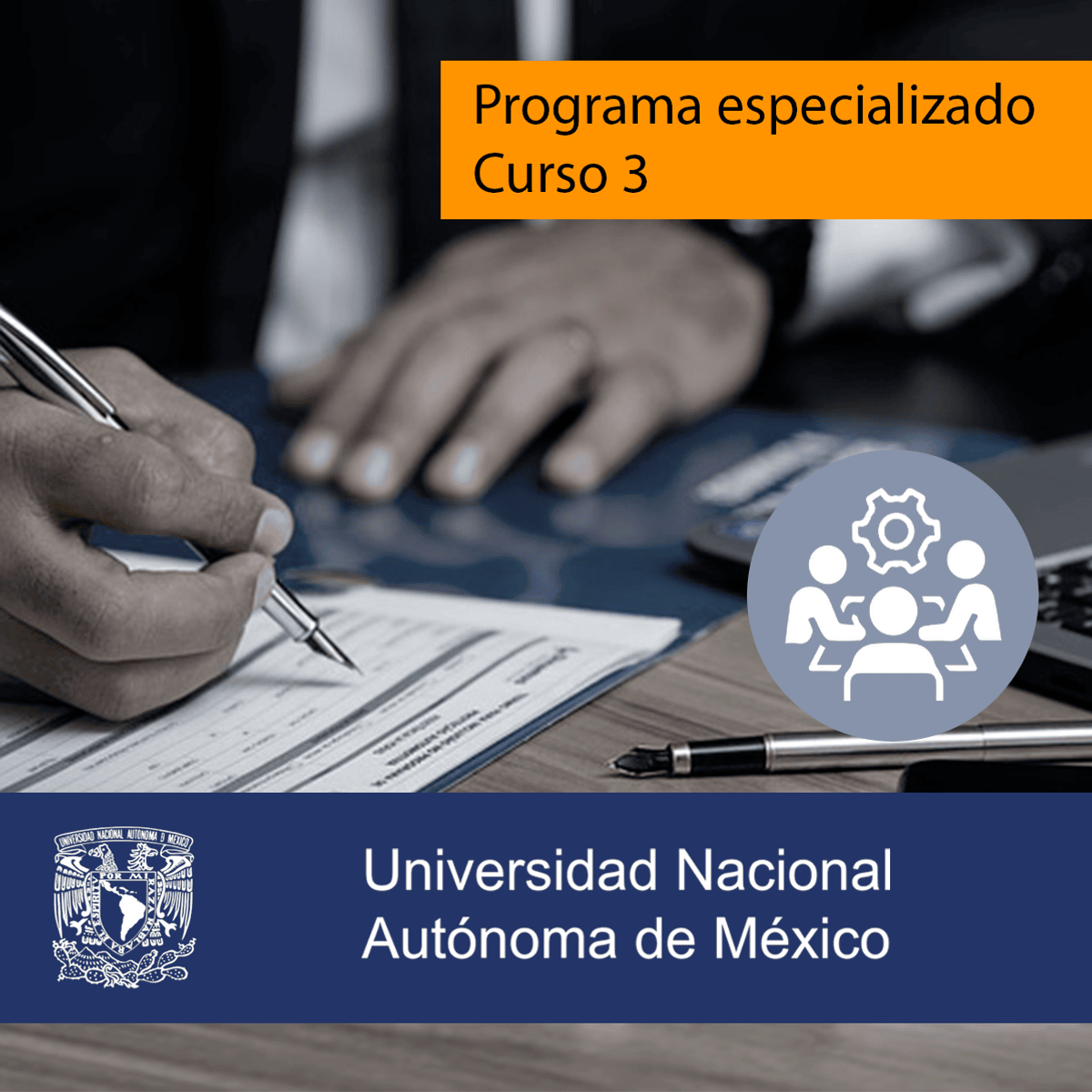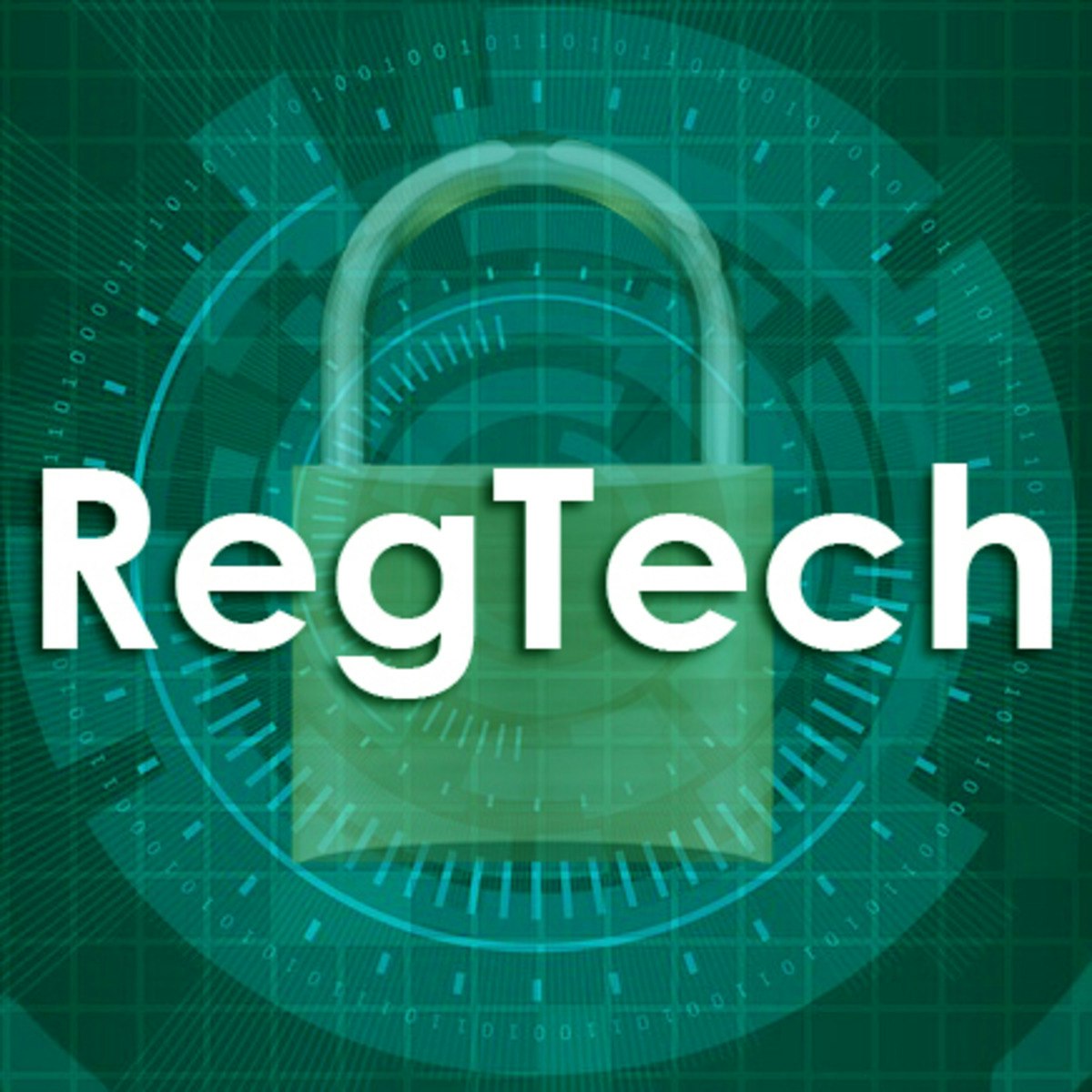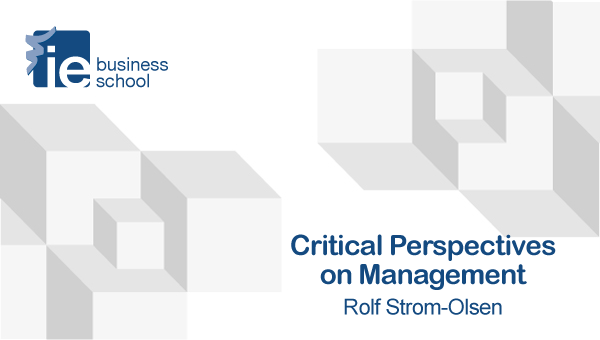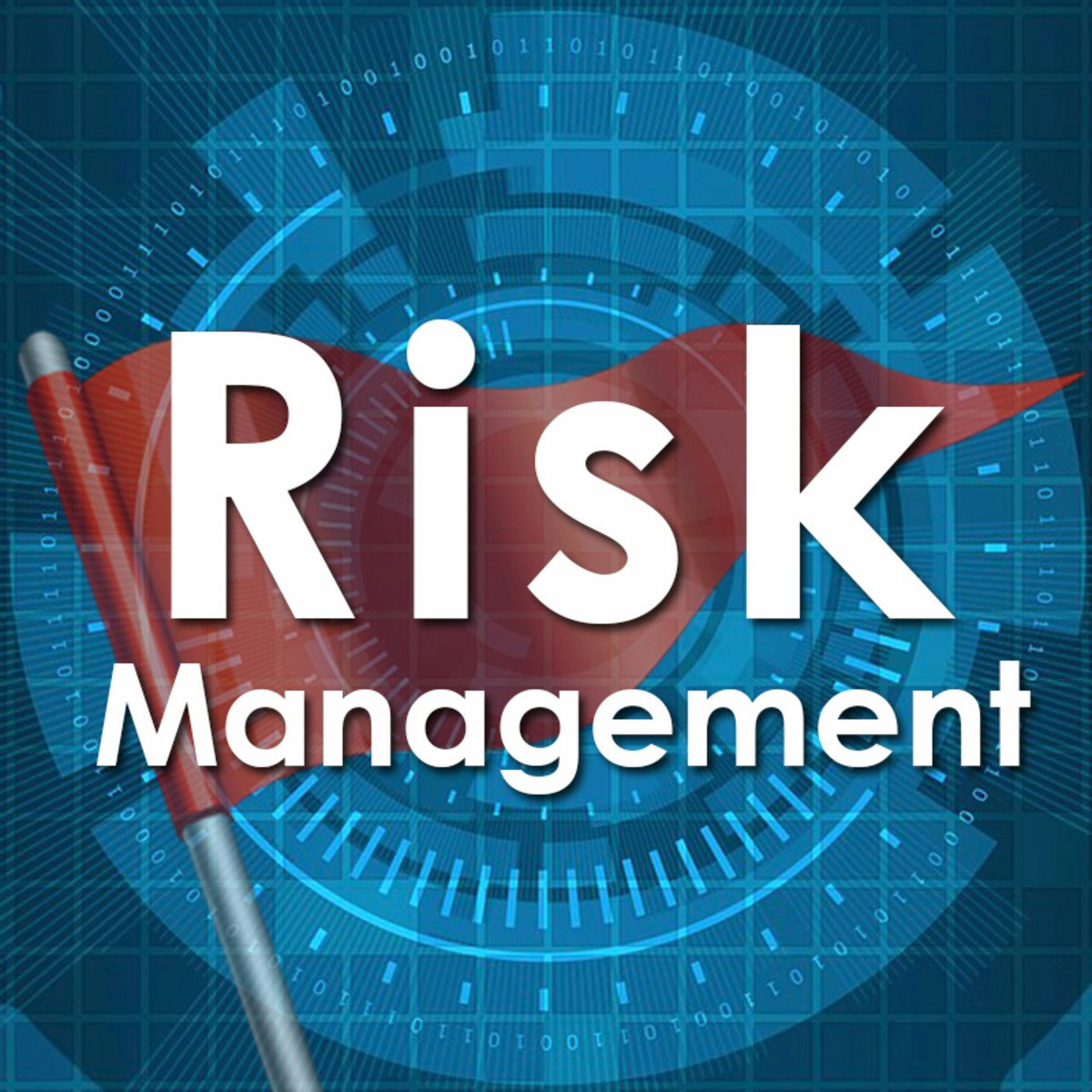Corporate Governance
vigating the Helm: A Comprehensive Guide to Corporate Governance
Corporate governance is the system of rules, practices, and processes by which a company is directed and controlled. It essentially outlines how a company operates, how it aligns its interests with those of its diverse stakeholders, and how it makes decisions. Think of it as the internal compass and map that guides a corporation. This intricate system involves balancing the interests of many parties, including shareholders, senior management, customers, suppliers, lenders, the government, and the community. Effective corporate governance can pave the way for ethical decision-making, foster trust with investors and the public, and ultimately contribute to a company's long-term financial health and sustainability.
Working in corporate governance can be engaging for several reasons. It places individuals at the center of critical decision-making processes that shape a company's future. Professionals in this field often grapple with complex ethical considerations and play a vital role in ensuring a company operates responsibly and transparently. Furthermore, the evolving nature of business, with increasing focus on sustainability and stakeholder engagement, means that corporate governance is a dynamic and intellectually stimulating area.
Introduction to Corporate Governance
At its core, corporate governance provides the framework for how a company is run. It encompasses the mechanisms, processes, and relations by which corporations are controlled and directed. It specifies the distribution of rights and responsibilities among different participants in the corporation, such as the board of directors, managers, shareholders, and other stakeholders, and spells out the rules and procedures for making decisions on corporate affairs. The fundamental aim is to ensure that the company is managed in a way that maximizes long-term value while safeguarding the interests of all its stakeholders.
What is Corporate Governance? Defining the Essentials
Corporate governance is fundamentally about ensuring that a company is managed effectively and ethically. It's the structure of rules, practices, and processes used to direct and manage a company. The core principles underpinning strong corporate governance generally include accountability, transparency, fairness, and responsibility. Accountability means that decision-makers are answerable for their actions. Transparency involves providing clear, accurate, and timely information to stakeholders about the company's operations and performance. Fairness refers to the equitable treatment of all stakeholders, particularly shareholders. Responsibility entails ensuring the company complies with legal and ethical standards and acts in the best interests of the company and its stakeholders.
These principles are not just abstract concepts; they translate into tangible practices. For example, transparency is demonstrated through regular and accurate financial reporting, which allows investors to make informed decisions. Accountability is enforced through mechanisms like independent audits and board oversight. Fairness is reflected in policies that protect minority shareholder rights. Ultimately, these principles work together to build trust and confidence among all parties involved with the company.
For those new to the concept, imagine a well-run sports team. The coach (management) makes day-to-day decisions, but the team owner (shareholders) has ultimate authority and expects the team to win (generate value) while playing by the rules (ethical conduct). The league (regulators) sets overarching rules that all teams must follow. Corporate governance is the playbook that defines these roles, responsibilities, and how everyone interacts to achieve success fairly and transparently.
A Look Back: The Evolution of Corporate Governance
The concept of corporate governance isn't new, with its roots tracing back to the rise of early corporations like the East India Company in the 16th and 17th centuries. However, the modern understanding and emphasis on corporate governance gained significant traction in the latter half of the 20th century, particularly in the 1970s in the United States. This period saw a growing recognition of the need for more structured oversight of corporations.
Several key milestones have shaped its evolution. The establishment of the Securities and Exchange Commission (SEC) in the U.S. in the 1930s was an early step towards regulating securities markets and protecting investors. Later, high-profile corporate scandals and financial crises, such as the collapse of Enron and WorldCom in the early 2000s, and the 2008 global financial crisis, served as powerful catalysts for significant reforms. These events exposed weaknesses in existing governance practices and underscored the critical need for stronger accountability and transparency.
In response to these challenges, landmark legislation like the Sarbanes-Oxley Act (SOX) of 2002 in the U.S. was enacted. SOX introduced stricter accounting and financial reporting standards for public companies to protect investors from fraudulent practices. Internationally, organizations like the Organisation for Economic Co-operation and Development (OECD) have played a crucial role in developing and promoting principles of good corporate governance, with the G20/OECD Principles of Corporate Governance becoming a global benchmark. These principles have been revised over time to address emerging issues and changing economic landscapes.
Why It Matters: The Significance in Today's Business World
In today's complex and interconnected business environment, strong corporate governance is more critical than ever. It serves as the bedrock for building and maintaining trust with investors, customers, employees, and the wider community. When companies operate transparently and hold their leaders accountable, it fosters confidence and can attract investment, which is crucial for growth and innovation.
Effective corporate governance contributes directly to a company's long-term success and sustainability. By establishing clear lines of responsibility and robust oversight, it helps companies mitigate risks, whether they are financial, operational, or reputational. Good governance practices can lead to better decision-making, improved operational efficiency, and a stronger ethical culture within the organization. This, in turn, can enhance a company's reputation, making it more attractive to top talent and loyal customers.
Furthermore, in an era of increasing scrutiny on environmental, social, and governance (ESG) factors, robust corporate governance demonstrates a company's commitment to responsible business practices. This can lead to improved stakeholder relations, a stronger brand image, and a more resilient business model capable of navigating the challenges of a rapidly changing world. Conversely, poor corporate governance can lead to financial losses, legal troubles, reputational damage, and even corporate failure.
A Global View: Variations in Governance Approaches
While the core principles of good corporate governance are widely recognized, their application and emphasis can vary significantly across different countries and regions. These variations are often influenced by a nation's legal traditions, economic development, ownership structures, and cultural norms. Broadly, distinct models such as the Anglo-American, Continental European, and Asian models showcase these differences.
The Anglo-American model, prevalent in countries like the United States and the United Kingdom, typically emphasizes shareholder rights and a market-oriented approach. It often features dispersed ownership, a strong role for independent directors, and a focus on maximizing shareholder value. In contrast, the Continental European model, found in countries like Germany and France, often incorporates a broader range of stakeholder interests, including those of employees, through mechanisms like co-determination (employee representation on boards). Banks and other corporations may hold significant stakes in companies, leading to a more relationship-based system.
Asian models of corporate governance also exhibit diversity. For example, in Japan, traditional governance often involved close relationships between companies, banks, and suppliers (the "keiretsu" system), though reforms have moved towards greater independence and shareholder focus. In other parts of Asia, family-controlled businesses are common, which can present unique governance challenges and opportunities related to succession planning and minority shareholder protection. International organizations like the OECD play a vital role in promoting convergence towards best practices while acknowledging these national differences. The G20/OECD Principles of Corporate Governance, for instance, provide a global benchmark that countries can adapt to their specific contexts, aiming to enhance economic efficiency, sustainable growth, and financial stability.
Key Components of Corporate Governance
Effective corporate governance relies on several interconnected components working in concert. These elements define the structure, responsibilities, and ethical compass of an organization, ensuring it operates in the best interests of its stakeholders. Understanding these components is crucial for anyone looking to delve into the field of corporate governance.
The Architects: Roles of the Board of Directors and Management
The board of directors and senior management are central figures in the corporate governance landscape, each with distinct but complementary roles. The board of directors is the primary force influencing corporate governance and is elected by shareholders to oversee the company and protect shareholder interests. Its key responsibilities include setting the company's strategic direction, appointing and overseeing the chief executive officer (CEO) and other senior executives, monitoring and evaluating the company's performance, and ensuring the integrity of financial reporting and internal controls. The board is expected to act as a steward of the company, making decisions for the long-term health and value creation of the organization.
Senior management, led by the CEO, is responsible for the day-to-day operations of the company and for implementing the strategies approved by the board. While the board provides oversight and guidance, management executes the business plan, manages resources, and engages with employees and customers. A clear delineation of roles and responsibilities between the board and management is essential for effective governance, preventing conflicts and ensuring that both oversight and operational execution are handled effectively. The board delegates authority to the CEO, who in turn delegates to other senior managers, but the ultimate accountability to shareholders rests with the board.
Imagine a ship: the board of directors is like the ship's owner and navigator, charting the course (strategy) and ensuring the captain (CEO) is competent and sailing safely towards the destination. The CEO and their crew (management) are responsible for actually sailing the ship, managing the engines, and handling the daily tasks on board.
These courses offer insights into strategic management and organizational design, which are fundamental to understanding the interplay between boards and management.
The Owners and Beyond: Shareholder Rights and Stakeholder Engagement
Shareholders, as owners of the company, have fundamental rights that corporate governance frameworks aim to protect and facilitate. These typically include the right to secure methods of ownership registration, to convey or transfer shares, to obtain relevant and material information on the corporation on a timely and regular basis, to participate and vote in general shareholder meetings, to elect and remove members of the board, and to share in the profits of the corporation. Ensuring the equitable treatment of all shareholders, including minority and foreign shareholders, is a cornerstone of good governance.
Beyond shareholders, modern corporate governance increasingly emphasizes the importance of engaging with a broader range of stakeholders. Stakeholders are any individuals or groups that have an interest in the company's activities, such as employees, customers, suppliers, creditors, and the communities in which the company operates. Effective stakeholder engagement involves recognizing their rights (whether established by law or mutual agreements) and encouraging active cooperation between the corporation and its stakeholders in creating wealth, jobs, and the sustainability of financially sound enterprises. This broader perspective acknowledges that a company's long-term success is intertwined with the well-being of the various groups it impacts and interacts with.
Consider a company planning to build a new factory. Shareholders will be interested in the project's profitability. Employees will be concerned about job creation and working conditions. The local community will care about environmental impact and economic benefits. Good corporate governance encourages the company to consider all these perspectives in its decision-making process, leading to more sustainable and widely accepted outcomes.
For a deeper understanding of how businesses interact with various stakeholders and societal influences, these courses may prove beneficial.
The Moral Compass: Ethical Guidelines and Corporate Social Responsibility
Ethical guidelines and Corporate Social Responsibility (CSR) are integral to robust corporate governance, acting as the moral compass that guides a company's decisions and actions. Ethics in corporate governance means more than just complying with the law; it involves fostering a culture of integrity, honesty, and fairness in all business dealings. This includes establishing a clear "tone at the top," where the board and senior management demonstrate a commitment to ethical conduct, which then permeates throughout the organization.
Corporate Social Responsibility (CSR) extends this ethical framework to encompass a company's impact on society and the environment. It involves businesses considering the interests of society by taking responsibility for the impact of their activities on customers, employees, shareholders, communities, and the environment in all aspects of their operations. This can manifest in various ways, such as adopting sustainable environmental practices, ensuring fair labor conditions, investing in community development, and promoting diversity and inclusion. Increasingly, strong CSR performance is seen not just as a moral imperative but also as a driver of long-term value, enhancing reputation, attracting talent, and building stronger stakeholder relationships.
For example, a company that invests in reducing its carbon footprint, ensures its supply chain is free from unethical labor practices, and contributes to local education programs is demonstrating a commitment to CSR. This not only benefits society and the environment but can also enhance the company's brand image and appeal to socially conscious consumers and investors. The OECD Principles, for example, encourage active cooperation between corporations and stakeholders in creating sustainable enterprises.
These courses explore the critical dimensions of ethics and social responsibility in the corporate world.
Further reading on the broader implications of corporate actions and investment can be found in these books.
The Watchtowers: Transparency and Accountability Mechanisms
Transparency and accountability are the twin pillars that uphold the integrity of any corporate governance system. Transparency means that a company is open and clear about its operations, financial performance, strategic direction, and decision-making processes. This is achieved through timely and accurate disclosure of all material information, allowing shareholders and other stakeholders to make informed judgments about the company. Mechanisms for transparency include regular financial reporting, annual reports, disclosures of executive compensation, and clear communication about risks and opportunities.
Accountability ensures that those in positions of power, primarily the board of directors and senior management, are answerable for their actions and the company's performance. It involves establishing clear lines of responsibility and ensuring that there are consequences for failing to meet those responsibilities. Key accountability mechanisms include independent audits of financial statements, performance evaluations for the CEO and other executives, and the ability of shareholders to hold the board accountable through voting rights and, in some cases, legal action. Effective accountability also relies on robust internal controls to prevent fraud and ensure compliance with laws and regulations.
Imagine a publicly traded company. Transparency requires it to publish detailed quarterly and annual financial statements, audited by an independent firm. If the company performs poorly or if there are concerns about management decisions, accountability mechanisms allow shareholders to question the board at the annual meeting, vote on director appointments, or even propose resolutions. This openness and answerability build trust and help ensure the company is run responsibly.
These courses delve into the importance of compliance and assurance in maintaining transparency and accountability.
Corporate Governance Frameworks and Models
The principles of corporate governance are translated into practice through various frameworks and models adopted around the world. These frameworks provide the structure and guidelines for how companies are directed and controlled, reflecting the legal, cultural, and economic contexts of their respective regions. Understanding these different approaches is key to appreciating the global landscape of corporate governance.
Global Perspectives: Anglo-American, European, and Asian Models
Different regions have developed distinct approaches to corporate governance, often categorized into broad models like the Anglo-American, Continental European, and Asian models. The Anglo-American model, prominent in countries like the United States, United Kingdom, Canada, and Australia, is characterized by a strong emphasis on shareholder rights and market-based financing. Ownership is often dispersed among many shareholders, and there's a clear separation between ownership and management. Boards typically include a significant number of independent outside directors, and the primary objective is often viewed as maximizing shareholder value. Disclosure requirements are generally extensive, and an active market for corporate control (e.g., takeovers) acts as a disciplinary mechanism.
The Continental European model, seen in countries like Germany, France, and the Netherlands, tends to take a broader stakeholder perspective. Companies often have closer ties with banks, which may be significant shareholders and lenders. Employee representation on supervisory boards (as in Germany's two-tier board system) is a key feature in some countries, reflecting a greater emphasis on social cohesion and long-term stability. Ownership can be more concentrated, with families, other corporations, or banks holding significant blocks of shares. The focus is often on the long-term health and sustainability of the enterprise, considering the interests of a wider range of stakeholders.
Asian models of corporate governance are diverse, reflecting the varied economic and cultural landscapes of the region. In Japan, the traditional "keiretsu" system involved complex cross-shareholdings and close relationships between companies, banks, and suppliers, though reforms have increasingly focused on shareholder rights and board independence. In many East Asian economies, family-owned or controlled businesses are prevalent, which can influence governance structures, succession planning, and the protection of minority shareholders. Countries like South Korea, with its "chaebol" (large family-controlled conglomerates), have also seen significant governance reforms aimed at increasing transparency and accountability. Across Asia, there is a growing recognition of the importance of adopting international best practices while respecting local contexts.
These courses offer a foundational understanding of corporate strategy and governance structures, which are influenced by these global models.
For those interested in a comparative legal perspective, this book provides in-depth analysis.
Setting the Rules: Regulatory Frameworks
Regulatory frameworks play a crucial role in shaping and enforcing corporate governance standards. These frameworks consist of laws, regulations, and codes of conduct that companies are expected or required to follow. Two prominent examples that have had a significant international impact are the U.S. Sarbanes-Oxley Act (SOX) and the G20/OECD Principles of Corporate Governance.
The Sarbanes-Oxley Act of 2002 was enacted in the United States in response to major corporate and accounting scandals. Its primary aim is to protect investors by improving the accuracy and reliability of corporate disclosures. Key provisions of SOX include: holding corporate officers accountable for the accuracy of financial reports (Section 302); requiring companies to publish information in their annual reports concerning the scope and adequacy of their internal control structures and procedures for financial reporting (Section 404); establishing the Public Company Accounting Oversight Board (PCAOB) to oversee the audits of public companies; and enhancing criminal penalties for corporate fraud. SOX has had a far-reaching impact, influencing governance practices not only in the U.S. but also for foreign companies listed on U.S. exchanges and even inspiring similar reforms in other countries.
The G20/OECD Principles of Corporate Governance are a globally recognized benchmark for good corporate governance. First issued in 1999 and revised since, these principles are non-binding but provide detailed recommendations for national policymakers and regulators. The Principles cover six key areas: ensuring the basis for an effective corporate governance framework; the rights and equitable treatment of shareholders and key ownership functions; institutional investors, stock markets, and other intermediaries; the role of stakeholders in corporate governance; disclosure and transparency; and the responsibilities of the board. They aim to promote transparent and fair markets, protect investor rights, encourage active cooperation with stakeholders, and ensure boards are accountable and effective. Many countries have used the OECD Principles as a basis for developing their own national codes of corporate governance.
These courses provide insights into the regulatory environment and the responsibilities that come with it.
The Evolving Landscape: Emerging Trends in Governance
Corporate governance is not static; it continually evolves in response to changes in the business environment, societal expectations, and technological advancements. Several emerging trends are currently shaping the future of governance models. One significant trend is the increasing focus on Environmental, Social, and Governance (ESG) factors. Investors and other stakeholders are demanding greater transparency and accountability from companies regarding their environmental impact, social responsibility (including diversity, equity, and inclusion), and the quality of their governance. This is driving companies to integrate ESG considerations into their core strategies and reporting.
Another key trend is the growing importance of stakeholder capitalism, which posits that companies should aim to create long-term value for all stakeholders, not just shareholders. This contrasts with a more traditional shareholder primacy model. This shift is leading to more inclusive decision-making processes and a greater emphasis on corporate purpose beyond profit maximization. Furthermore, technology is profoundly impacting governance. Artificial intelligence (AI) and blockchain are being explored for their potential to enhance transparency, improve risk management, automate compliance, and even facilitate new forms of decentralized governance. However, these technologies also introduce new ethical and regulatory challenges. The rise of shareholder activism, often focused on ESG issues or company performance, continues to influence board decisions and corporate strategy. Boards are also facing increased scrutiny regarding their composition, particularly concerning diversity and relevant expertise to address complex modern challenges like cybersecurity and climate change.
These courses touch upon some of these emerging areas, particularly ESG and the technological impacts on business.
For those looking to understand the broader investment landscape, these resources may be helpful.
Learning from Experience: Case Studies in Governance
Examining real-world case studies of both successful corporate governance implementations and notable failures provides invaluable lessons. Success stories often highlight companies that have proactively embraced strong ethical cultures, robust risk management, transparent communication, and genuine stakeholder engagement. These companies typically demonstrate long-term resilience, enjoy strong reputations, and are better equipped to navigate economic downturns and industry disruptions. For instance, companies consistently recognized for good governance often have diverse and independent boards, clear accountability structures, and a demonstrable commitment to sustainability and corporate social responsibility.
Conversely, governance failures, such as those seen at Enron, WorldCom, or more recently in various financial institutions during the 2008 crisis, offer stark warnings. These cases often reveal common themes: weak board oversight, dominant CEOs who stifle dissent, inadequate internal controls, a lack of transparency in financial reporting, unethical behavior driven by perverse incentives, and a disregard for stakeholder interests. The consequences of such failures can be catastrophic, leading to massive financial losses, bankruptcy, job losses, erosion of investor confidence, and significant reputational damage. Analyzing these failures helps in understanding the critical importance of each component of the governance framework and the red flags that can signal potential problems. For example, the case of Theranos highlighted the dangers of misleading representations and a lack of independent scrutiny.
Studying these diverse experiences allows current and aspiring governance professionals, as well as business leaders, to understand what works, what doesn't, and how to build more resilient and ethical organizations. It underscores the idea that good governance is not merely a compliance exercise but a fundamental driver of sustainable success.
These courses offer perspectives on corporate reality and critical management views that can inform the analysis of governance case studies.
Corporate Governance and Risk Management
Corporate governance and risk management are inextricably linked. A robust governance framework provides the foundation for effective risk identification, assessment, and mitigation. Indeed, overseeing risk management is one of the board of directors' most critical responsibilities. By integrating risk considerations into strategic decision-making, companies can protect themselves from potential threats and capitalize on opportunities, ultimately safeguarding stakeholder interests and ensuring long-term sustainability.
Spotting Trouble: Identifying Governance-Related Risks
Governance-related risks are potential threats to an organization that arise from weaknesses or failures in its governance structure, processes, or culture. Identifying these risks is the first crucial step in mitigating them. One common area of risk involves the board of directors itself. This can include a lack of independence among board members, insufficient expertise or diversity on the board, ineffective board oversight of management, or conflicts of interest at the board level. Poor succession planning for key leadership roles also falls into this category.
Another significant source of governance risk stems from unethical behavior or a weak ethical culture. This can manifest as fraud, corruption, bribery, or a general disregard for compliance with laws and regulations. A "tone at the top" that does not prioritize ethical conduct can permeate the organization and lead to serious misconduct. Inadequate internal controls and financial reporting deficiencies are also major governance risks. Weak controls can lead to errors, misstatements in financial reports, and an inability to detect or prevent fraud, as seen in historical corporate scandals. Furthermore, a lack of transparency and accountability can obscure problems, erode trust, and prevent timely corrective action. Risks can also arise from failing to adequately consider the interests of all stakeholders, leading to reputational damage or regulatory scrutiny.
Think of a company where the CEO also chairs the board and most directors are close personal associates. This lack of independence could make it difficult for the board to challenge the CEO's decisions, even if they are risky or not in the company's best interest. This situation represents a clear governance-related risk.
A Holistic View: Integrating Governance into Enterprise Risk Management
Enterprise Risk Management (ERM) is a comprehensive and integrated approach to managing all of an organization's risks to achieve its strategic objectives. Integrating corporate governance principles directly into the ERM framework is essential for a holistic view of risk. This means that governance-related risks are not treated in isolation but are considered alongside financial, operational, strategic, and compliance risks. The board of directors plays a vital role in overseeing this integration, ensuring that the company's risk appetite is clearly defined and aligned with its overall strategy.
Effective integration involves embedding risk awareness and accountability throughout the organization, from the board down to individual employees. Governance structures, such as board committees (e.g., audit committee, risk committee), should have clearly defined responsibilities for overseeing specific risk areas. Furthermore, ERM processes should incorporate mechanisms for identifying, assessing, monitoring, and reporting on governance-related risks. This allows the organization to proactively address potential weaknesses in its governance framework before they escalate into significant problems. By making governance an integral part of ERM, companies can foster a more risk-aware culture and make better-informed decisions that balance risk and reward.
For instance, an ERM framework that incorporates governance would not only look at market risks or operational disruptions but also assess the risk of non-compliance with new regulations, the risk of an ineffective board, or the risk of an ethical lapse within the company. This comprehensive view helps ensure that all critical risks are managed effectively.
These courses explore risk management within the financial and FinTech sectors, highlighting the importance of a robust governance framework.
This topic delves deeper into the specific area of financial risk.
Navigating Storms: Crisis Management and Governance Failures
Corporate crises can arise from various sources, including operational failures, financial misconduct, reputational damage, or external shocks. Governance failures are often a significant contributing factor to the severity and impact of a crisis. When governance structures are weak, with poor oversight, lack of accountability, or an unethical culture, companies are less prepared to prevent crises and less effective in managing them when they occur. Examples like the financial crisis of 2008 highlighted how governance shortcomings in financial institutions, such as inadequate risk management and misaligned incentives, contributed to systemic problems.
Effective crisis management relies heavily on strong corporate governance. A well-functioning board is crucial during a crisis for providing leadership, making critical decisions, and overseeing the company's response. Clear lines of communication, established protocols for crisis response, and a culture of transparency are essential for managing stakeholder expectations and maintaining trust during turbulent times. Conversely, governance failures during a crisis—such as a lack of transparency, delayed decision-making, or attempts to cover up wrongdoing—can exacerbate the situation, leading to further financial losses, severe reputational damage, and legal liabilities. Learning from past governance failures, both within the company and from other organizations, is vital for strengthening crisis preparedness and response capabilities.
Consider a company facing a major product recall. Strong governance would ensure that there are pre-defined crisis communication plans, that the board is actively involved in overseeing the response, and that the company is transparent with customers and regulators about the issue and the steps being taken to address it. A company with weak governance might delay acknowledging the problem, try to downplay its severity, or lack the leadership to manage the situation effectively, leading to a far worse outcome.
Keeping an Eye Out: Tools for Monitoring Governance Risks
Effectively monitoring governance risks requires a combination of processes, tools, and a proactive organizational culture. Regular board and committee evaluations are essential tools. These evaluations, often facilitated by independent third parties, assess the effectiveness of the board and its committees in fulfilling their oversight responsibilities, including risk oversight. They can identify weaknesses in board composition, processes, or dynamics that could contribute to governance failures.
Internal audit functions play a critical role in monitoring governance risks by independently assessing the adequacy and effectiveness of the company's internal controls, risk management processes, and governance practices. They provide assurance to the board and management that risks are being appropriately managed. Whistleblower hotlines and reporting mechanisms are vital tools for uncovering unethical conduct or governance breaches that might otherwise go undetected. Ensuring these channels are confidential, accessible, and that reports are taken seriously and investigated thoroughly is crucial for their effectiveness.
Furthermore, companies increasingly use Key Risk Indicators (KRIs) specifically related to governance. These might include metrics on compliance training completion, results of employee ethics surveys, turnover in key governance roles, or the number of whistleblower reports. Regular reporting on these KRIs to the board and senior management helps in early identification of potential issues. Technology also offers new tools, such as data analytics to detect patterns of potentially fraudulent activity or software platforms to manage board documentation, communication, and compliance tracking more efficiently.
Imagine a company uses a dashboard that tracks various governance KRIs. If the dashboard shows a sudden spike in ethics hotline reports from a particular department or a consistent failure to meet compliance training targets, it can alert management and the board to investigate potential underlying governance weaknesses in that area.
Education Pathways in Corporate Governance
For individuals interested in pursuing a career or developing expertise in corporate governance, a variety of educational pathways are available. These range from formal academic degree programs to professional certifications, specialized workshops, and accessible online courses. Building a strong educational foundation is crucial for understanding the complexities of governance and developing the skills needed to excel in this field.
Online courses, in particular, offer a flexible and accessible way to build foundational knowledge or supplement existing education. Platforms like OpenCourser allow learners to easily browse through thousands of courses, save interesting options to a list, compare syllabi, and read summarized reviews to find the perfect online course. Whether you are a student exploring career options, a professional seeking to enhance your skills, or someone making a career transition, online learning can provide targeted knowledge in specific areas of corporate governance, such as risk management, ethics, or regulatory compliance.
Formal Learning: Undergraduate and Graduate Degree Programs
Several undergraduate and graduate degree programs can provide a strong foundation for a career in corporate governance. At the undergraduate level, degrees in Business Administration, Finance, Accounting, Law, or Economics often include coursework relevant to corporate governance principles, business ethics, financial reporting, and regulatory environments. These programs equip students with a broad understanding of how organizations operate and the context in which governance functions.
At the graduate level, more specialized programs are available. A Master of Business Administration (MBA) degree, particularly with a concentration in finance, strategy, or ethics, can be highly beneficial. Many MBA programs offer specific courses or modules on corporate governance. For those seeking a more focused legal perspective, a Juris Doctor (JD) degree, followed by specialization in corporate law, provides in-depth knowledge of the legal and regulatory aspects of governance. Furthermore, specialized master's degrees such as a Master of Science (MS) in Corporate Governance, MS in Risk Management, or an MS in Compliance Law offer curricula specifically tailored to the field. These programs often delve into advanced topics like board dynamics, stakeholder theory, international governance frameworks, and crisis management.
Choosing a formal degree program often depends on your long-term career aspirations. If you aim for senior leadership roles or specialized legal or financial positions within corporate governance, a graduate degree is often advantageous and sometimes essential. These programs not only provide knowledge but also help develop critical thinking, analytical, and communication skills vital for governance professionals.
To explore foundational business concepts that underpin many corporate governance roles, consider these courses:
Credentials of Expertise: Certifications in Corporate Governance
Professional certifications offer a targeted way to gain specialized knowledge and demonstrate expertise in corporate governance. These credentials can be particularly valuable for individuals seeking to advance their careers or transition into governance-focused roles. Several organizations around the world offer well-recognized certifications.
For example, the Chartered Governance Professional (CGP) qualification, offered by bodies affiliated with The Chartered Governance Institute (formerly ICSA), is a globally recognized standard for governance professionals. It typically covers areas like corporate law, finance, strategy, risk management, and board dynamics. In the United States, organizations like the National Association of Corporate Directors (NACD) offer director certification programs (e.g., NACD Directorship Certification®) aimed at current and aspiring board members, focusing on governance best practices and director effectiveness. Other certifications might focus on specific areas within governance, such as risk management (e.g., Certified in Risk and Information Systems Control - CRISC from ISACA) or compliance (e.g., Certified Compliance & Ethics Professional - CCEP from the Society of Corporate Compliance and Ethics - SCCE).
Pursuing a certification usually involves meeting certain educational and experiential requirements, passing one or more rigorous examinations, and often committing to ongoing professional development to maintain the credential. These certifications signal to employers and peers a high level of commitment to the field and a validated understanding of its complexities. They can enhance career prospects, credibility, and earning potential. When choosing a certification, consider its relevance to your specific career goals and the industries or regions in which you wish to work. OpenCourser's Professional Development section can be a good starting point to find courses that might align with certification preparation.
Focused Learning: Workshops and Executive Education
Workshops and executive education programs provide intensive, focused learning opportunities for individuals looking to deepen their understanding of specific aspects of corporate governance or to stay abreast of current trends and best practices. These programs are often designed for busy professionals and may range from a few days to several weeks in duration.
Universities with strong business and law schools frequently offer executive education programs tailored to corporate governance. These programs might cover topics such as board effectiveness, strategic risk oversight, ESG integration, crisis management, or leading ethical organizations. They often feature experienced faculty, industry practitioners, and peer-to-peer learning opportunities, making them valuable for networking as well as skill development. Similarly, professional associations, consulting firms, and specialized training providers conduct workshops on various governance-related subjects. These can be particularly useful for gaining practical insights and tools that can be immediately applied in the workplace.
Workshops and executive education are excellent options for experienced professionals, board members, and senior executives seeking to enhance their governance expertise without committing to a full degree or certification program. They can also be beneficial for those in related fields, such as finance, law, or risk management, who need to understand the governance implications of their work. The condensed format allows for a deep dive into specific issues, often incorporating case studies, simulations, and interactive discussions. If you're looking for ways to quickly gain specific knowledge, exploring options through resources like OpenCourser's Business category might lead you to relevant short courses or programs that function similarly to workshops in terms of focused learning.
These courses provide a glimpse into the kind of focused learning offered in executive education, particularly regarding leadership and company culture.
Learning on Your Own: Self-Study Resources and MOOCs
Self-study resources and Massive Open Online Courses (MOOCs) offer incredibly flexible and accessible avenues for learning about corporate governance. These options are ideal for individuals who prefer to learn at their own pace, are exploring the field, or wish to supplement their existing knowledge without formal institutional commitments. The wealth of information available online and in print makes self-directed learning a viable path for many.
Numerous books, academic journals, industry publications, and reports from regulatory bodies and professional organizations delve into various aspects of corporate governance. Seminal texts provide foundational theories, while contemporary articles and reports offer insights into current trends, challenges, and best practices. Websites of organizations like the OECD, the World Bank, and national regulators often provide free access to valuable governance resources, including principles, guidelines, and research papers. Following thought leaders and relevant organizations on professional networking sites can also provide a steady stream of current information.
MOOC platforms have revolutionized access to high-quality educational content, often from leading universities and institutions worldwide. Many platforms offer a wide array of courses specifically on corporate governance or related topics such as business ethics, financial accounting, risk management, and corporate law. These courses can range from introductory overviews to more specialized deep dives. MOOCs often include video lectures, readings, quizzes, and sometimes even peer-graded assignments or projects, providing a structured learning experience. While some MOOCs are free, others may offer optional certificates of completion for a fee, which can be a good way to demonstrate learning. For anyone starting out, exploring introductory courses on OpenCourser can be an excellent way to gauge interest and build a foundational understanding before committing to more intensive study. The platform's "Save to list" feature allows learners to easily shortlist courses, and the Learner's Guide provides tips on how to create a structured curriculum for self-learning.
Here are some MOOCs available that cover corporate governance and related foundational topics, suitable for self-study:
These books are considered valuable resources for understanding corporate governance and can be excellent for self-study.
Career Progression in Corporate Governance
A career in corporate governance can be both challenging and rewarding, offering opportunities to contribute to the ethical and effective functioning of organizations. The field provides diverse pathways, from entry-level analytical roles to senior executive positions. Understanding the typical career trajectories, required skills, and strategies for advancement can help aspiring professionals navigate this domain successfully.
For those new to this path, or considering a pivot, it's encouraging to know that skills from various backgrounds, such as law, finance, accounting, and even communications, can be highly transferable. The journey may require dedication to continuous learning and adaptation, but the impact one can make in ensuring responsible corporate conduct is significant. Ground yourself in the fundamentals, be prepared for a rigorous environment, and know that your contributions are vital to building trust and sustainability in the business world.
Starting Out: Entry-Level Roles
Entry-level positions in corporate governance provide foundational experience and exposure to the core principles and practices of the field. Common roles for individuals starting their careers include Compliance Analyst, Governance Analyst, Junior Risk Officer, or Paralegal with a focus on corporate law. In these roles, responsibilities might involve researching regulations, assisting with the preparation of board materials, supporting internal audits, monitoring compliance with policies, and helping to maintain corporate records.
A bachelor's degree in a relevant field such as business, finance, accounting, law, or public administration is typically required. Strong analytical skills, attention to detail, excellent written and verbal communication abilities, and a high degree of integrity are essential attributes for success in these roles. Internships or co-op programs in corporate legal departments, compliance teams, or risk management functions can provide valuable practical experience and a competitive edge when seeking entry-level positions. Building a solid understanding of relevant laws, regulations (like SOX or local corporate codes), and governance best practices through coursework or self-study is also highly beneficial.
While the initial roles may involve more task-oriented work, they offer an excellent opportunity to learn the intricacies of corporate governance from the ground up, observe how senior professionals operate, and begin building a professional network. Don't be discouraged if the initial responsibilities seem less glamorous; they are the building blocks for a more strategic career. Embrace the learning process, ask questions, and seek out mentorship opportunities. Your dedication at this stage will lay a strong foundation for future advancement.
These roles represent typical starting points or closely related fields for a career in corporate governance.
This course can provide foundational knowledge for those starting in compliance.
Climbing the Ladder: Mid-Career Opportunities
As professionals gain experience and expertise in corporate governance, a variety of mid-career opportunities become available. These roles typically involve greater responsibility, more strategic input, and often team leadership. Examples include Corporate Secretary (or Assistant Corporate Secretary), Governance Manager, Senior Compliance Officer, Risk Manager, Ethics Officer, or Internal Audit Manager. Professionals in these positions are often responsible for managing board meetings and documentation, developing and implementing governance policies, overseeing compliance programs, managing specific risk areas, leading ethics initiatives, or conducting complex internal investigations.
At this stage, a combination of practical experience, a strong track record, and often advanced education (like a master's degree or relevant certifications such as CGP or CCEP) becomes increasingly important. Strong leadership, project management, interpersonal, and problem-solving skills are critical. The ability to navigate complex organizational dynamics, communicate effectively with senior executives and board members, and influence decision-making are also key attributes. Mid-career professionals are expected to have a deep understanding of relevant laws, regulations, and evolving governance best practices, and to be able to apply this knowledge to their organization's specific context.
This phase of your career is about demonstrating your ability to not only understand governance but to effectively implement and manage it. It’s a time to take on more complex projects, mentor junior staff, and actively contribute to shaping the organization's governance culture. Continuous learning is still vital, as the governance landscape is always evolving. Networking with peers in the field through professional associations can also provide valuable insights and career opportunities. Remember that each step up the ladder brings new challenges but also greater opportunities to make a significant impact.
These are examples of mid-career roles and related areas in the governance field.
Consider this book for insights into board operations.
Reaching the Top: Senior Roles in Governance
At the senior levels of corporate governance, professionals take on significant leadership responsibilities, shaping the overall governance framework and ethical direction of the organization. Key senior roles include Chief Governance Officer (CGO), Chief Compliance Officer (CCO), Chief Risk Officer (CRO), General Counsel (with a strong governance focus), or senior positions on the board of directors, such as Board Director or Chair of a key committee (e.g., Audit, Governance, or Compensation Committee).
Individuals in these roles are typically seasoned professionals with extensive experience, deep expertise in governance, law, risk, and ethics, and a proven ability to lead and influence at the highest levels of an organization. Advanced degrees (e.g., JD, MBA) and relevant professional certifications are common. Strategic thinking, exceptional judgment, strong leadership and communication skills, and the ability to navigate complex stakeholder relationships are paramount. Senior governance leaders are responsible for advising the board and CEO on critical governance matters, ensuring the organization operates with integrity and in compliance with all applicable laws and regulations, and fostering a strong ethical culture. They play a key role in crisis management, strategic decision-making, and representing the company to external stakeholders, including regulators and investors.
Reaching these senior roles requires a long-term commitment to professional development, a strong ethical compass, and a track record of sound judgment and effective leadership. It's a path that demands resilience and a continuous pursuit of excellence. The responsibility is significant, but so is the opportunity to shape the character and long-term success of an organization. For those who aspire to these heights, remember that leadership in governance is about more than just rules and processes; it's about fostering a culture of integrity and accountability from the top down.
This represents a pinnacle role in the corporate governance structure.
These courses explore leadership from different perspectives, relevant for senior roles.
Building Your Toolkit: Skills Development and Networking
Success in corporate governance, at any career stage, hinges on a diverse set of skills and a strong professional network. Key technical skills include a thorough understanding of corporate law, securities regulation, accounting principles, risk management frameworks, and ethical standards. Analytical skills are crucial for interpreting complex information, identifying potential risks or compliance issues, and developing effective solutions. Attention to detail is paramount, as governance work often involves meticulous review of documents and adherence to precise requirements.
Beyond technical expertise, "soft skills" are equally vital. Excellent communication skills, both written and verbal, are necessary for drafting policies, preparing board reports, and advising senior leaders. Interpersonal skills are essential for building relationships with diverse stakeholders, influencing decision-making, and navigating organizational politics. Problem-solving and critical thinking abilities allow governance professionals to address complex challenges and develop practical solutions. Integrity and ethical judgment are non-negotiable, as these professionals are often the custodians of an organization's ethical compass. Leadership skills become increasingly important as one progresses to more senior roles, involving motivating teams, driving change, and fostering a culture of compliance and ethics.
Networking plays a crucial role in career development and staying current in the field. Joining professional associations (e.g., Society for Corporate Governance, NACD, SCCE, GARP for risk professionals) provides opportunities for learning, sharing best practices, and connecting with peers. Attending industry conferences, seminars, and webinars can also enhance knowledge and expand your professional circle. Building relationships with mentors and colleagues can provide guidance, support, and potential career opportunities. For those just starting, or even experienced professionals, actively participating in online forums related to corporate governance or leveraging professional networking platforms can be very beneficial. Remember, your toolkit of skills and your network are assets that you should continuously cultivate throughout your career. OpenCourser itself can be a valuable tool; beyond finding courses, features like "Share" can help you discuss resources with your network, and ensuring your OpenCourser profile is up-to-date can increase your visibility if you choose to publish lists or reviews.
This book offers insights into improving governance across the board, relevant for skills development.
This topic is closely related and fundamental to many governance roles.
Ethical Challenges in Corporate Governance
The practice of corporate governance is frequently tested by complex ethical challenges. Navigating these dilemmas requires a strong ethical framework, clear policies, and a commitment to transparency and accountability. How an organization addresses these challenges often defines its character and its long-term sustainability. Professionals in this field must be adept at identifying and managing these sensitive issues.
Navigating Grey Areas: Conflict of Interest Management
A conflict of interest arises when an individual's personal interests—or the interests of a close associate or family member—could potentially interfere with their duty to act in the best interests of the corporation. These situations can occur at all levels of an organization, from employees making procurement decisions to board members evaluating a transaction with a company in which they have a financial stake. If not managed properly, conflicts of interest can lead to biased decision-making, unfair advantages, and a loss of trust in the organization.
Effective corporate governance requires robust mechanisms for identifying, disclosing, and managing conflicts of interest. This typically involves clear policies that define what constitutes a conflict, require individuals to disclose any potential conflicts, and outline procedures for recusal or other mitigation measures when a conflict exists. For board members and senior executives, disclosure of financial interests, affiliations, and relationships is particularly critical. The board's nominating or governance committee often plays a key role in overseeing conflict of interest policies and reviewing potential conflicts involving directors and senior management. Transparency is paramount; even the appearance of a conflict can be damaging, so open communication and proactive management are essential to maintain integrity.
Imagine a board member whose spouse owns a significant share in a company that is bidding for a major contract with the corporation they serve. This presents a clear potential conflict of interest. The board member should promptly disclose this relationship. Depending on the company's policy and the specifics of the situation, the board member might be recused from any discussions or votes related to that contract to ensure the decision is made solely in the corporation's best interest.
Speaking Up: Whistleblowing and Ethical Reporting
Whistleblowing refers to the act of an employee or other insider reporting illegal, unethical, or improper conduct within an organization to those who can take corrective action. Effective whistleblowing mechanisms are a critical component of good corporate governance, providing an essential safeguard against misconduct and fostering a culture of accountability. They can bring to light issues such as fraud, corruption, harassment, safety violations, or other serious breaches of company policy or law that might otherwise remain hidden.
Organizations have a responsibility to establish clear and accessible channels for employees and other stakeholders to report concerns without fear of retaliation. This often involves creating confidential hotlines, online reporting systems, or designated ethics officers who can receive and investigate complaints. Crucially, there must be a commitment to thoroughly and impartially investigate all credible allegations and to take appropriate disciplinary and corrective action when wrongdoing is confirmed. Protecting whistleblowers from any form of reprisal is paramount; retaliation not only discourages future reporting but can also be illegal. Strong anti-retaliation policies and a visible commitment from leadership to support whistleblowers are essential for these systems to be effective.
Consider an employee who discovers evidence of financial misreporting within their department. A robust ethical reporting system would allow them to report this concern confidentially, perhaps through an anonymous hotline. The company would then be obligated to investigate the claim thoroughly. If the claim is substantiated, the company would take action to correct the misreporting and address the conduct of those involved, all while ensuring the whistleblower is protected from any negative consequences for speaking up.
This course touches upon the importance of professional responsibility, which aligns with ethical reporting.
The Balancing Act: Profit and Social Responsibility
One of the most persistent ethical challenges in corporate governance is finding the right balance between the pursuit of profit and the fulfillment of broader social responsibilities. While generating returns for shareholders is a primary objective for most corporations, there's a growing recognition that long-term value creation is intrinsically linked to how a company interacts with its employees, customers, communities, and the environment. Ignoring social responsibilities can lead to reputational damage, regulatory scrutiny, loss of customer loyalty, and difficulty attracting and retaining talent, all of which can ultimately harm profitability.
This balancing act requires careful consideration of how business decisions impact various stakeholders. For example, a company might face a choice between sourcing cheaper materials from a supplier with questionable labor practices or paying more for ethically sourced materials. While the former might boost short-term profits, the latter aligns better with social responsibility and can enhance long-term brand value and customer trust. Effective governance involves integrating these considerations into the company's strategy and decision-making processes. This often means going beyond mere legal compliance to proactively address environmental sustainability, labor standards, human rights, community investment, and ethical marketing.
Many companies are now formally incorporating Environmental, Social, and Governance (ESG) criteria into their business models and reporting frameworks, reflecting this shift. The board of directors has a key role in overseeing this balance, ensuring that the company's pursuit of profit is conducted in a manner that is ethical, sustainable, and aligned with the long-term interests of all stakeholders.
These courses provide insights into sustainability and responsible investing, which are central to this balancing act.
Global Operations, Local Norms: Cultural and Ethical Dilemmas in Global Firms
Multinational corporations (MNCs) face unique and often complex ethical dilemmas arising from operating across diverse cultural, legal, and regulatory landscapes. What is considered an acceptable business practice or ethical norm in one country may be viewed differently, or even be illegal, in another. This can create significant challenges for maintaining consistent ethical standards and corporate governance practices across a global organization.
For example, issues related to bribery and corruption can vary widely. A payment that might be considered a customary "facilitation payment" in one culture could be viewed as a bribe and a serious legal violation in the company's home country or under international anti-corruption conventions. Differing labor laws, environmental regulations, attitudes towards human rights, and consumer protection standards also present ongoing challenges. MNCs must decide whether to adhere to a single global standard (often based on the stricter requirements of their home country or international norms) or to adapt their practices to local customs, which can sometimes create a "race to the bottom" if local standards are lax.
Effective global corporate governance requires developing a strong, universally applicable code of ethics and conduct, providing comprehensive training to employees worldwide on these standards, and establishing robust monitoring and enforcement mechanisms. It also involves a deep understanding of local cultures and legal requirements, and an ability to navigate these differences without compromising core ethical principles. This often requires significant investment in compliance programs, due diligence on local partners, and a commitment from leadership to uphold ethical standards even when it might be commercially challenging. Sensitivity to cultural nuances combined with an unwavering commitment to core values is key to navigating these complex ethical terrains.
This book explores corporate law from an international perspective, which can be relevant to understanding these global dilemmas.
Technology and Corporate Governance
Technology is rapidly transforming the landscape of corporate governance. Innovations such as artificial intelligence (AI), blockchain, and advanced data analytics are presenting both unprecedented opportunities to enhance governance practices and new challenges that boards and management must navigate. Understanding the impact of these technologies is becoming increasingly crucial for governance professionals.
The Digital Frontier: Impact of AI and Blockchain
Artificial intelligence (AI) and blockchain technology are poised to significantly reshape corporate governance by enhancing efficiency, transparency, and decision-making. AI can analyze vast amounts of data to identify patterns, predict risks, and provide insights that support more informed strategic decisions by boards and executives. For instance, AI algorithms can be used for enhanced fraud detection, continuous monitoring of compliance, and optimizing resource allocation. AI-powered tools can also streamline routine governance tasks, freeing up professionals to focus on more strategic issues.
Blockchain technology, with its decentralized and immutable ledger system, offers powerful capabilities for increasing transparency and accountability in corporate processes. It can provide a secure and verifiable record of transactions, ownership, and voting, potentially transforming areas like share registration, proxy voting, and supply chain auditing. Smart contracts, which are self-executing contracts with the terms of the agreement directly written into code, can automate and enforce certain governance rules and compliance procedures, reducing the potential for manual error or manipulation. The combined use of AI and blockchain can create powerful synergies, such as AI predicting potential governance issues while blockchain ensures the processes are transparent and tamper-proof.
However, the adoption of these technologies also presents challenges. These include the technical complexity and cost of implementation, the need for specialized expertise, concerns about data privacy and security, algorithmic bias in AI decision-making, and the evolving regulatory landscape surrounding these innovations. Despite these hurdles, the potential for AI and blockchain to revolutionize governance by fostering greater trust and efficiency is substantial.
These courses explore the intersection of technology and business, providing context for AI and blockchain's role in governance.
Guarding the Gates: Data Privacy and Cybersecurity Governance
In an increasingly digital world, data privacy and cybersecurity have become critical governance concerns for all organizations. The sheer volume of data that companies collect, process, and store – relating to customers, employees, and their own operations – creates significant value but also significant risks. High-profile data breaches and privacy violations can result in severe financial penalties, reputational damage, loss of customer trust, and legal liabilities. Therefore, robust governance over data privacy and cybersecurity is no longer just an IT issue but a fundamental board-level responsibility.
Effective data privacy governance involves establishing clear policies and procedures for how personal data is collected, used, stored, and protected, in compliance with an arraying number of regulations like the General Data Protection Regulation (GDPR) in Europe or various state-level laws in the U.S. This includes ensuring data minimization, purpose limitation, and providing individuals with rights over their data. Cybersecurity governance involves implementing a comprehensive strategy to protect the organization's information assets from cyber threats such as hacking, malware, ransomware, and phishing attacks. This includes establishing strong technical defenses, regular security assessments and penetration testing, employee training on cyber hygiene, and incident response plans to manage breaches effectively if they occur.
The board of directors has a crucial oversight role in ensuring that the organization has an adequate framework for managing data privacy and cybersecurity risks. This includes understanding the threat landscape, approving the cybersecurity strategy and budget, ensuring that management has implemented appropriate controls, and overseeing the response to any significant incidents. Appointing a Chief Information Security Officer (CISO) or equivalent role, and ensuring they have the resources and authority to be effective, is also a key governance practice. Given the evolving nature of cyber threats and privacy regulations, continuous monitoring, adaptation, and a culture of security awareness are essential.
This course delves into risk management within the context of FinTech, which heavily involves data security and privacy.
Streamlining Operations: Digital Tools for Board Management
The way boards of directors operate is also being transformed by digital tools designed to streamline their administrative tasks, enhance communication, and improve overall effectiveness. Traditional board processes often involved cumbersome paper-based board packs, lengthy email chains, and logistical challenges in scheduling meetings and distributing information securely. Modern board management software, often delivered as cloud-based platforms, addresses many of these inefficiencies.
These digital tools, sometimes called board portals, provide a secure, centralized repository for all board-related materials, including meeting agendas, minutes, financial reports, strategic documents, and policy manuals. This ensures that directors have easy access to the information they need, when they need it, from any device. Features often include secure messaging capabilities for director communication, tools for conducting electronic voting or written consents, minute-taking assistance, and archives of past meeting materials. These platforms can also help with scheduling meetings, tracking director attendance, and managing board evaluations. By digitizing these processes, companies can reduce administrative burdens, improve information security, enhance collaboration among directors, and ensure better record-keeping for compliance and audit purposes.
The adoption of such tools can lead to more efficient and effective board meetings, allowing directors to spend less time on administrative tasks and more time on strategic discussions and oversight. However, it's important to choose reputable providers that offer robust security features to protect sensitive board information. Training for directors on how to use these tools effectively is also crucial for successful adoption. As remote and hybrid working models become more common, these digital solutions are increasingly essential for facilitating seamless board operations.
Peering into the Crystal Ball: Future Tech Trends in Governance
Looking ahead, several emerging technological trends are likely to further shape the landscape of corporate governance. The continued advancement of Artificial Intelligence (AI) will likely lead to more sophisticated tools for predictive risk analytics, automated compliance checks, and even AI-assisted decision support for boards. For example, AI could help identify subtle patterns of potential misconduct or provide early warnings of emerging strategic risks by analyzing vast datasets from internal and external sources. However, this will also necessitate careful governance of AI itself, addressing ethical considerations like algorithmic bias, transparency in AI decision-making, and accountability for AI-driven outcomes.
The evolution of blockchain technology and distributed ledger technologies (DLTs) may lead to new models of corporate organization and stakeholder engagement. Decentralized Autonomous Organizations (DAOs), which operate based on smart contracts on a blockchain, represent an experimental frontier in governance, though their mainstream adoption faces significant legal and regulatory hurdles. More immediately, blockchain could enhance the security and transparency of shareholder voting, improve traceability in supply chains (relevant for ESG reporting), and streamline the management of digital assets.
The proliferation of the Internet of Things (IoT) will generate even more data, creating new opportunities for operational efficiency and risk monitoring, but also expanding the cybersecurity attack surface and raising further data privacy concerns that governance frameworks must address. Furthermore, advancements in data analytics and visualization tools will empower boards and management with more intuitive ways to understand complex information, enabling more data-driven oversight and strategic planning. As these and other technologies mature, corporate governance practices will need to adapt continuously to leverage their benefits while mitigating their inherent risks, ensuring that technology serves to strengthen, rather than undermine, ethical and effective corporate oversight.
This course provides an overview of how technology intersects with business, offering a framework for understanding future trends.
Globalization and Corporate Governance
Globalization has profoundly reshaped the business world, creating interconnected markets and multinational corporations that operate across diverse legal, cultural, and economic terrains. This interconnectedness brings immense opportunities but also significant corporate governance challenges. Effectively managing governance in a globalized economy requires navigating these complexities with sensitivity and robust frameworks.
The World Stage: Cross-Border Governance Challenges
Operating across national borders presents multinational corporations (MNCs) with a host of unique governance challenges. One of the primary difficulties is navigating the patchwork of differing legal and regulatory requirements in each country of operation. What is permissible or standard practice in one jurisdiction may be strictly regulated or even illegal in another. This requires MNCs to maintain a sophisticated understanding of local laws related to corporate formation, shareholder rights, labor practices, environmental standards, taxation, and anti-corruption, and to ensure compliance across all their subsidiaries.
Cultural differences also pose significant challenges. Varying norms around business ethics, communication styles, hierarchical structures, and stakeholder expectations can lead to misunderstandings and complicate the implementation of consistent governance standards. For instance, approaches to board composition, the role of independent directors, or the degree of transparency expected can differ markedly. Furthermore, managing risks across a global footprint is inherently more complex. MNCs face geopolitical risks, currency fluctuations, and the challenge of overseeing operations in distant locations, where direct oversight may be limited. Ensuring consistent application of the company's code of conduct and ethical standards across diverse cultural contexts requires ongoing effort and adaptation.
Another layer of complexity arises from differing enforcement regimes. Some countries may have robust regulatory bodies and a strong rule of law, while others may have weaker institutions or higher levels of corruption, making it more challenging to ensure fair treatment and resolve disputes. These cross-border challenges demand a sophisticated and adaptable approach to corporate governance, one that balances global consistency with local responsiveness.
This course provides a foundation in international business law, relevant for understanding cross-border challenges.
Seeking Common Ground: Harmonizing International Standards
In response to the challenges of diverse national governance regimes, there has been a significant movement towards harmonizing international corporate governance standards. The goal is not necessarily to create a single, uniform global code, which would be impractical given national differences, but rather to establish a set of widely accepted principles and best practices that can serve as a benchmark for countries and companies. This harmonization aims to enhance market confidence, facilitate cross-border investment, and promote a level playing field for international business.
Organizations like the Organisation for Economic Co-operation and Development (OECD) have been at the forefront of this effort. The G20/OECD Principles of Corporate Governance are a prime example of a globally recognized framework that provides guidance to policymakers, regulators, and market participants. These principles, adopted by numerous countries as a basis for their own reforms, cover key areas such as shareholder rights, board responsibilities, disclosure, and the role of stakeholders. Other international bodies, such as the World Bank, the International Monetary Fund (IMF), and the Financial Stability Board (FSB), also promote good governance practices as essential for economic stability and development.
Stock exchanges also play a role by establishing listing requirements that often incorporate governance standards. Furthermore, institutional investors, many of whom operate globally, are increasingly influential in advocating for the adoption of international best practices in the companies they invest in. While complete harmonization remains an ongoing process with many complexities, the trend is towards greater convergence around core principles of transparency, accountability, fairness, and responsibility, which helps to build trust in global capital markets.
This course offers a step-by-step guide to implementing ISO 37000, an international standard for governance of organizations.
The Local Flavor: Cultural Impacts on Governance Practices
Culture plays a profound and often subtle role in shaping corporate governance practices around the world. National and even regional cultural values can influence everything from leadership styles and decision-making processes to attitudes towards authority, risk, transparency, and the relative importance of individual versus collective interests. Understanding these cultural impacts is crucial for multinational corporations seeking to implement effective governance globally and for investors assessing companies in different markets.
For instance, in cultures that are highly hierarchical and deferential to authority, it may be more challenging to foster open debate and dissent within the boardroom, or for employees to utilize whistleblowing channels. In more collectivist cultures, there might be a greater emphasis on stakeholder harmony and long-term relationships, potentially influencing how companies balance the interests of shareholders with those of employees, suppliers, and the community. Conversely, in highly individualistic cultures, shareholder value maximization might be a more dominant driver of corporate behavior. Attitudes towards transparency and disclosure can also vary; some cultures may value directness and openness, while others might favor more indirect communication and discretion.
These cultural nuances mean that a "one-size-fits-all" approach to corporate governance is unlikely to be effective. While core principles of good governance should be universally applied, the way they are implemented may need to be adapted to fit the local cultural context. This requires sensitivity, cross-cultural awareness, and a willingness to understand different perspectives. For global firms, this often involves investing in cross-cultural training for managers and board members, and developing governance frameworks that are robust enough to ensure ethical conduct and accountability while also being flexible enough to accommodate local norms in a principled way.
Global Success Stories: Learning from Effective International Governance
Examining companies that have successfully navigated the complexities of global corporate governance offers valuable insights. These "success stories" often share common characteristics: a deep commitment from top leadership to ethical conduct and strong governance, a willingness to invest in understanding and adapting to local contexts while upholding core global standards, and robust systems for transparency and accountability across all operations.
Many successful global companies establish a clear and universally applied code of conduct that forms the ethical backbone of their worldwide operations. They then supplement this with specific training and guidance tailored to the cultural and legal nuances of each region. They often empower local leadership while maintaining strong oversight mechanisms from the corporate headquarters, ensuring that local autonomy does not lead to a dilution of core governance principles. Furthermore, these companies typically excel at stakeholder engagement, actively listening to and addressing the concerns of local communities, employees, and governments, which helps to build trust and a strong social license to operate.
Effective use of technology also plays a role, with global companies leveraging digital platforms for consistent communication, training, compliance monitoring, and risk management across their geographically dispersed units. Moreover, a commitment to diversity and inclusion, not just at the headquarters but throughout their global workforce and leadership, can bring diverse perspectives that enhance decision-making and cultural understanding. Learning from these examples can help other companies develop more effective strategies for managing governance in an increasingly interconnected and complex global business environment. They demonstrate that it is possible to achieve commercial success while adhering to high standards of corporate citizenship worldwide.
These courses provide foundational knowledge about strategy and governance which are essential for global success.
Frequently Asked Questions (FAQs)
This section addresses some common questions that individuals exploring a career in corporate governance often have. The answers aim to provide practical insights and help set realistic expectations.
What qualifications are typically needed for a career in corporate governance?
The qualifications for a career in corporate governance can vary depending on the specific role and industry, but a combination of education, relevant experience, and certain skills is generally expected. A bachelor's degree in fields like business administration, finance, accounting, law, or economics often serves as a foundational requirement, particularly for entry-level positions such as compliance analyst or governance assistant. For more specialized or senior roles, advanced degrees like an MBA (especially with a concentration in finance or strategy), a Juris Doctor (JD) for legal-focused governance roles, or a master's degree in corporate governance, risk management, or compliance can be highly advantageous.
Professional certifications can also significantly enhance a candidate's profile. Credentials such as the Chartered Governance Professional (CGP), Certified Compliance & Ethics Professional (CCEP), or certifications in risk management (e.g., FRM, PRM) or internal audit (CIA) demonstrate specialized knowledge and commitment to the field. Beyond formal qualifications, strong analytical abilities, excellent communication skills (both written and verbal), meticulous attention to detail, problem-solving capabilities, and a high degree of integrity and ethical judgment are crucial. Practical experience, perhaps gained through internships or roles in related areas like legal departments, finance teams, or audit functions, is also highly valued by employers.
For those transitioning from other fields, highlighting transferable skills is key. For instance, legal professionals bring an understanding of regulatory frameworks, accountants bring financial acumen, and communications experts can excel in stakeholder engagement. It's a field where continuous learning is important, so a demonstrated willingness to stay updated on evolving regulations and best practices is also a valuable asset.
How does corporate governance impact a company's valuation?
Corporate governance practices can have a significant impact on a company's valuation in several ways. Generally, companies with strong, transparent, and accountable governance frameworks tend to be valued more highly by investors. This is because good governance reduces perceived risk and increases investor confidence. Investors are often willing to pay a premium for shares in companies where they believe their rights will be protected, where financial reporting is accurate and reliable, and where the board and management are acting in the best long-term interests of the company.
Strong governance can lead to better operational performance and more effective strategic decision-making, which in turn can drive profitability and growth, positively impacting valuation. It helps in mitigating risks of fraud, mismanagement, and costly legal or regulatory actions, which can erode shareholder value. Companies known for ethical behavior and social responsibility, often hallmarks of good governance, may also benefit from enhanced brand reputation and customer loyalty, contributing indirectly to valuation. Conversely, poor corporate governance—evidenced by weak oversight, lack of transparency, conflicts of interest, or ethical lapses—can lead to a "governance discount," where investors demand a higher rate of return to compensate for the increased risk, thereby lowering the company's valuation. Numerous studies have shown a positive correlation between the quality of corporate governance and financial performance metrics, including share price and market capitalization.
For those interested in the financial aspects, understanding topics like Finance & Economics and Accounting can provide deeper insights into valuation.
What are some emerging trends in corporate governance careers?
The field of corporate governance is dynamic, and several emerging trends are shaping career opportunities. One of the most significant is the increasing focus on Environmental, Social, and Governance (ESG) criteria. This has created a demand for professionals who can help companies integrate ESG factors into their strategy, operations, and reporting. Roles like ESG Analyst, Sustainability Manager, or governance professionals with ESG expertise are becoming more common. These roles require an understanding of sustainability frameworks, ESG reporting standards, and stakeholder engagement on these issues.
Another trend is the growing importance of technology and data analytics in governance. Professionals with skills in data analysis, cybersecurity governance, and understanding the implications of technologies like AI and blockchain for governance processes are increasingly sought after. This includes roles focused on data privacy, managing cyber risk at the board level, and leveraging technology to improve compliance and risk management. The ability to interpret data and communicate insights to leadership is becoming a key skill.
Furthermore, there's a rising emphasis on stakeholder engagement and corporate purpose beyond just shareholder returns. This translates into a need for governance professionals who can help companies navigate complex stakeholder landscapes, communicate effectively about corporate values and impact, and build trust with a broader range of constituents. Increased regulatory scrutiny globally also means a continued demand for compliance and ethics professionals who can help organizations stay ahead of evolving legal requirements. Finally, as boards themselves face greater scrutiny, there may be more opportunities for advisory roles focused on board effectiveness, diversity, and succession planning.
These courses touch upon ESG and technological aspects relevant to emerging governance careers.
Can I transition into a corporate governance career from a non-legal background?
Yes, it is certainly possible to transition into a corporate governance career from a non-legal background, and many successful governance professionals come from diverse fields. While a legal background can be advantageous, particularly for roles heavily focused on regulatory compliance or corporate law, the multidisciplinary nature of corporate governance means that skills and knowledge from other areas are also highly valued. For instance, individuals with backgrounds in finance or accounting bring crucial expertise in financial reporting, internal controls, and risk management. Those from audit backgrounds are skilled in assessing processes and controls. Professionals with experience in communications or public relations may excel in stakeholder engagement and corporate reporting. Individuals from human resources can contribute to areas like ethical culture development and executive compensation.
To make a successful transition, it's important to identify your transferable skills and supplement them with specific knowledge relevant to corporate governance. This might involve taking targeted online courses, pursuing a relevant certification (like a CGP or CCEP), or even considering a graduate degree if you're aiming for more senior roles. Networking with professionals already in the governance field can provide valuable insights and potential leads. Emphasize how your existing experience—be it in risk assessment, project management, ethical decision-making, or stakeholder relations—can be applied to governance challenges. Highlighting a strong ethical compass, attention to detail, analytical abilities, and excellent communication skills will also be beneficial. Many organizations value diverse perspectives within their governance teams, so a non-traditional background, when combined with a clear commitment to learning the specifics of governance, can be an asset.
If you're considering such a transition, exploring foundational courses on OpenCourser can be a great way to build your understanding and demonstrate your commitment to prospective employers. You can also explore related career paths to see how your current skills might map over.
What are the primary challenges faced by corporate governance professionals today?
Corporate governance professionals today face a multitude of complex and evolving challenges. One primary challenge is keeping pace with the rapidly changing regulatory landscape. New laws and regulations related to areas like data privacy (e.g., GDPR), cybersecurity, ESG reporting, and anti-corruption are constantly emerging globally, requiring continuous learning and adaptation to ensure compliance. The increasing complexity of business operations, often spanning multiple jurisdictions with differing legal and cultural norms, adds another layer of difficulty.
Managing stakeholder expectations is an ongoing challenge. Governance professionals must help their organizations balance the often-competing interests of shareholders, employees, customers, regulators, and the community, particularly as societal expectations around corporate responsibility continue to rise. The rise of shareholder activism also presents challenges, requiring careful engagement and response. Technological disruption brings both opportunities and risks; leveraging new technologies like AI and blockchain for better governance while also managing the associated risks (e.g., cybersecurity threats, data breaches, ethical implications of AI) is a significant hurdle. Ensuring effective board oversight in an environment of increasing complexity and scrutiny, including issues of board composition, independence, and expertise, remains a core challenge.
Furthermore, fostering and maintaining a strong ethical culture throughout the organization in the face of pressures for short-term performance can be difficult. Dealing with geopolitical uncertainties and their impact on global operations and supply chains adds to the risk landscape that governance professionals must help navigate. Finally, the sheer volume of information and the speed at which events unfold in the modern business world require governance professionals to be agile, resilient, and highly effective communicators. These challenges underscore the critical and increasingly strategic role that corporate governance plays in modern organizations.
How do corporate governance roles vary across different industries?
While the fundamental principles of good corporate governance—transparency, accountability, fairness, and responsibility—are universal, the specific focus and emphasis of governance roles can vary significantly across different industries. This variation is often driven by industry-specific regulations, risk profiles, business models, and stakeholder concerns.
For example, in the financial services industry (e.g., banks, insurance companies), corporate governance roles are heavily influenced by stringent regulatory oversight due to the systemic importance of these institutions and the need to protect depositors and policyholders. There's a strong emphasis on risk management (credit risk, market risk, operational risk), capital adequacy, compliance with complex financial regulations (like Basel accords or Dodd-Frank), and consumer protection. Governance professionals in this sector need deep expertise in these specific regulatory frameworks. The course "Compliance in Financial Institutions" is an example of specialized knowledge needed here. [63vsit]
In the healthcare and pharmaceutical industries, governance concerns often revolve around patient safety, data privacy (e.g., HIPAA in the U.S.), research ethics, product liability, and compliance with healthcare regulations. Ethical considerations in research and development, marketing practices, and pricing are also prominent. The technology sector faces unique governance challenges related to intellectual property protection, data privacy and security, rapid innovation cycles, and the ethical implications of emerging technologies like AI. Governance roles here might have a stronger focus on cybersecurity risk and digital ethics.
In manufacturing and industrial sectors, environmental compliance, supply chain ethics, worker safety, and product quality are often key governance concerns. For companies in the extractive industries (oil, gas, mining), environmental impact, community relations, and managing geopolitical risks are paramount. Even in the non-profit sector, while the profit motive is absent, strong governance is crucial for ensuring accountability to donors, beneficiaries, and the public, as well as for managing resources effectively and adhering to the organization's mission. Therefore, while core governance skills are transferable, professionals may need to develop industry-specific knowledge to be most effective.
This course provides insight into the specific governance needs of family businesses, illustrating industry-specific nuances.
These books provide a general overview that can be applied and adapted across various industries.
Concluding Thoughts
Corporate governance is a vital and evolving field that sits at the intersection of business, law, ethics, and strategy. It provides the essential framework that enables companies to operate responsibly, ethically, and effectively, thereby building trust with stakeholders and contributing to long-term sustainable value. For those considering a path in corporate governance, it offers a challenging yet deeply rewarding career with the opportunity to make a tangible impact on how organizations behave and contribute to society.
The journey into corporate governance may seem daunting, given its complexities and the high stakes involved. However, with a commitment to continuous learning, the development of a strong ethical compass, and the cultivation of both technical and interpersonal skills, success is attainable. Whether you are just starting your career exploration, considering a transition, or seeking to deepen your existing expertise, resources like OpenCourser provide invaluable tools for finding relevant online courses and educational materials to support your growth. Remember that every step taken towards understanding and promoting good governance contributes to a more transparent, accountable, and ultimately, a more trustworthy business world.








